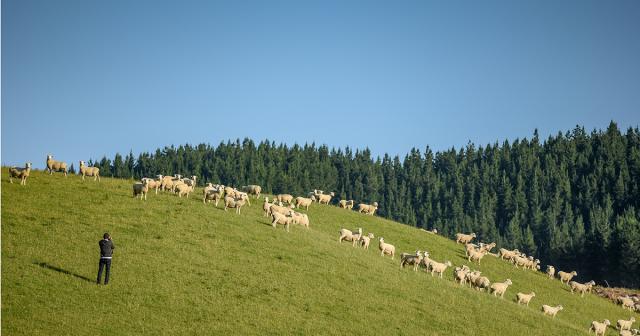Beef + Lamb New Zealand says it is good to see what the Government’s options are for addressing some of the Resource Management Act (RMA) regulations that are hugely problematic for sheep and beef farmers.

The Government has released for consultation a primary sector package and proposed changes to the National Policy Statement for Freshwater Management (NPS-FM) and the National Environmental Standards for Freshwater.
Chair Kate Acland says B+LNZ has been calling for changes, particularly in the freshwater regulations, for some time.
“We’re pleased the NPS-FM is being looked at because it is currently complex, often impractical and focused on unachievable numeric limits rather than the health of ecosystems.
“Last year we released independent scientific research that showed the way some of the NPS-FM target attribute states were determined was flawed, they’re not achievable and trying to achieve them will decimate farming and rural communities.
“This research, by Torlesse Environmental, found that even if agriculture was stopped and all catchments returned to their natural state throughout the country, up to 38 percent of rivers would still not meet the suspended fine sediment national bottom lines.
“It also found that an estimated 44 percent of all sheep and beef farmland would likely need to be retired, along with other extensive mitigations, if the national bottom lines for fine sediment were enforced. Even if these measures were taken, around 50 percent of the catchments currently below the national bottom lines would remain below them.
“On the back of this research, and since, we’ve made it clear that there needs to be a rethink about how we approach freshwater regulation. Rules need to account for natural processes, better accommodate different land uses and provide more realistic targets and timeframes.
“We agree that risk-based freshwater farm plans should take the place of consents and regional rules rather than just be in addition to them. B+LNZ is currently working with famers and the Government to ensure freshwater farm plans are fit for purpose and enduring.”
Acland acknowledges sheep and beef farming can have an impact on freshwater quality and that this needs to be managed.
“However, it’s vital we get how we manage this right. The farming sector and rural communities desperately need robust, inexpensive and uncomplicated frameworks for freshwater and the environment that deliver more reasonable, affordable and enduring outcomes.”
She says B+LNZ is analysing the options in the consultation materials and will provide further information to farmers on the consultation, including opportunities for input, over the next few weeks.
ENDS
For media queries, email [email protected]
Information about the consultation is available on the Ministry for the Environment’s website here.